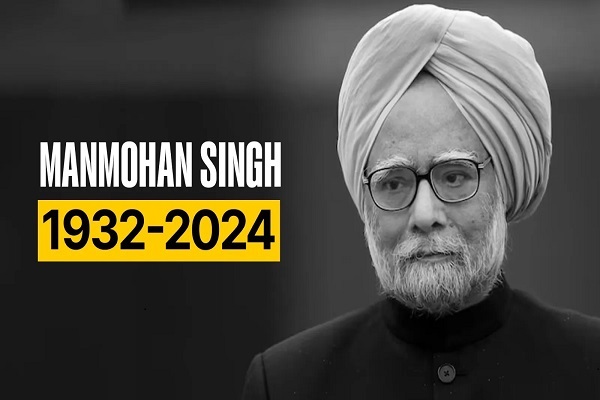Late Sardar Manmohan Singh, India’s 14th Prime Minister, is celebrated as a “gentle statesman.” An accomplished economist, he spearheaded India’s 1991 economic liberalization, transforming its global standing. As PM (2004–2014), his calm demeanor, integrity, and vision fostered inclusive growth and stability, leaving an enduring legacy of quiet, effective leadership in modern Indian history.
Manmohan Singh, who is credited with successfully anchoring the sinking ship of the Indian economy by ushering in bold economic reforms under Prime Minister P V Narasimha Rao, died at the age of 92. In his farewell media interaction, towards the end of his second term, former Prime Minister Manmohan Singh remarked, “History will be kinder to me”. The words have proved quite prophetic. Today, the nation remembers him as an astute and gentle statesman whose stature transcends the political divide and whose contribution to the country’s progress has few parallels.
In an era where politicians tend to claim credit for all good things that happen on their watch, here was an astoundingly accomplished leader preferring to leave the appraisal of his performance to future historians. This speaks volumes about the strength of his character and humility in the face of an unfair attack on his government, particularly the UPA-II, for the alleged policy paralysis and corruption scandals. It was ironic that a man of unblemished personal integrity, honesty and stellar track record had to endure the pain of sustained slander and a plummeting public image due to the follies of others in the government.
In the words of his former information adviser and journalist-author Sanjaya Baru, who wrote the book “The Accidental Prime Minister: The Making And Unmaking Of Manmohan Singh”, “He (Singh) was certainly an accidental Prime Minister, but that did not prevent him from occupying the country’s most important chair with both dignity and great competence.” His journey from a modest home in the desolate village in Punjab, lacking both electricity and water supply, to the high tables at Cambridge and Oxford, his academic achievements and his record of public and national service, make for a truly uplifting story.
Before becoming the Prime Minister — the first from a minority community — he had held every important position in economic policymaking in India — Chief Economic Adviser, Economic Affairs Secretary, RBI Governor, Planning Commission Deputy Chairman and Finance Minister. Along with former Prime Minister PV Narasimha Rao, he ushered in historic reforms and liberated India’s economy from the clutches of the ‘Licence-Permit Raj’, the stifling socialist era relics.
As Finance Minister in 1991, Singh changed the course of India’s economic trajectory, focusing on liberalisation, privatisation and opening up the economy to the rest of the world. It was the time when India was on the verge of default and he showed the courage to change the policy direction. Known for his frugal lifestyle, the gentle sardar, with his signature blue turban, served as PM for two terms in the Congress-led UPA government from 2004 to 2014.
It was due to Singh’s perseverance that India clinched a landmark nuclear deal with the United States in 2008, paving the way for strong strategic ties with Washington. This was a remarkable testament to Singh’s diplomatic acumen and ability to elevate India’s standing on the global stage. Undoubtedly, his lasting legacy is the potent tool he left behind in the hands of citizens – the Right to Information Act. #hydkhabar

